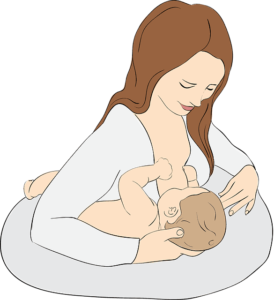During the first 1000 days of life, which is right from the day of conception to the child’s second birthday, a mother should take good care of not only her baby, but herself as well. Every expectant mother should ideally get herself registered at their nearest government child care centre.
The first 1000 days of life is important in a child’s physical and mental development, especially because 80% of the brain gets developed during this period. That’s why it becomes important that parents invest a lot of time during the crucial first 1000 days of a child’s life, playing, talking, and teaching the child new things.
Across the first 1000 days of life, right from conception to the child’s second birthday, a mother should take good care of not only her baby, but herself as well. Every expectant mother should ideally get herself registered at their nearest government child care centre.
Not only should the expectant mother get registered, until the child is born, the mother should get at least 4 tests done on a regular basis:
- Weight
- Blood
- Urine, and
- Blood Pressure (BP)
These tests help in identifying any health risk in advance and cure them as soon as possible.
For a baby to be born healthy, only the mother can’t do it all alone. All members of her family should contribute towards the child’s first 1000 days of life.
Let’s look at the importance of nutrition across six phases:
Table of Contents
1. Nutrition During Pregnancy
Daily consumption of iron and calcium tablets is critical, and therefore a must for the mother and her child. When consumed, the tablets may cause slight nausea or some minor inconvenience, they are only temporary.
But unfortunately, many women discard these tablets, as they are ignorance that the inconvenience can be minimised or even completely avoided if the they are consumed before going to bed.
A pregnant mother needs to increase the quantity of her diet, as she has to eat not only for herself but also her child. It is also important that the food is fresh and is balanced in terms of nutrition.
2. Nutrition During The First 48 Hours Post Delivery

Mother’s milk is extremely essential for the newborn right after childbirth, as there are many benefits of baby being fed with mother’s milk. But what is most crucial is mother’s thick milk that is fed right after she gives birth, which provides great immunity to the child to fight against various diseases.
The first 48 hours after childbirth is the most critical period for both the mother and the child. That’s why it is absolutely mandatory that both the mother and child stay at the hospital for full 48 hours right after delivery, so that they can both be taken care of properly and with close attention.
The child should be given Vitamin K injection immediately after birth and BCG (Bacille Calmette-Guérin) vaccine before leaving the hospital.
3. Nutrition from Month 1 to 6
For the first 6 months, the child should be fed with mother’s milk only. Not even water should be given to the child during this period. This will ensure that the child grows well.
4. Nutrition from Month 7 & 8
On completion of six months, along with mother’s milk, the child should also be introduced to regular food that is well-mashed, 2 to 3 times a day. This can include food like thick oatmeal porridge (Gada Dhaliya), lentils (Dhal) and a mixture of rice and lentils (Kichadi).
It is important to make sure that ghee, butter or oil is also mixed to the food.
5. Nutrition from Month 9 to 11
Between 9 and 11 months, the child should be fed with half-a-bowl of food, not less than 3 to 4 times a day.
If you would like to know the developmental milestones pertaining to each month during the first year, you can find them all in this page.
6. Nutrition from Month 12 to 23
From month 12 and up to 23 months, introduce the child to more new foods, at least 2 to 3 times a day. The quantity of each meal should be between three-fourths of a bowl up to a full bowl. At least till age two, mother’s milk should also be continued.
To know the developmental milestones pertaining to each month during the second year, click here.
The Demographic Dividend
A child born anywhere in any corner of the globe is special, be it in an urban or a rural area. Let’s take the example of India. According to the Indian Census report of 2011, the rural population of India was about 69%. In other words, 7 out of every 10 babies are born in small towns and villages.
In more ways than one therefore, the second birthday, which is the 1000th day in the life of a child, is a very important occasion for not only the child’s family, but also the entire village or community. From the child’s perspective especially, the 24th month is a significant developmental milestone.
The future of any nation depends on how good a demographic foundation for a better tomorrow is laid. A tomorrow, in which every child has a healthy birth and is able to lead a healthy and happy life. That’s why the first 1000 days of life of a child is important not only from the family or community’s point of view, but is also crucial from the nation’s point of view!
Conclusion
It is the responsibility of all the family members to always remember the importance of nutrition in the first 1000 days of life, as it is not only a crucial period for the development but also because it can secure the future wellbeing of the child. In fact, a strong foundation during childhood will secure the future of the child during adulthood.